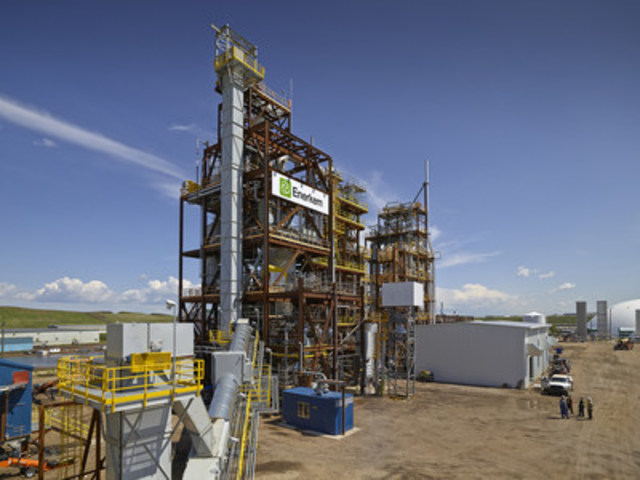 Enerkem Inc., a waste-to-biofuels and chemicals producer, has obtained certification from the International Sustainability and Carbon Certification (ISCC) system for the biomethanol production of its Enerkem Alberta Biofuels full-scale facility in Edmonton, Canada. The biorefinery is said to be the first ISCC certified plant in the world to convert municipal solid waste into biomethanol.
Enerkem Inc., a waste-to-biofuels and chemicals producer, has obtained certification from the International Sustainability and Carbon Certification (ISCC) system for the biomethanol production of its Enerkem Alberta Biofuels full-scale facility in Edmonton, Canada. The biorefinery is said to be the first ISCC certified plant in the world to convert municipal solid waste into biomethanol.
Enerkem already sells its biomethanol as a renewable chemical in North America and, with the ISCC certification, the company can now export it as a biofuel in Europe. With the addition of a biomethanol-to-ethanol conversion module in the second half of 2016, the biorefinery will also become the first to sell multiple renewable fuel and chemical products made from waste.
Biofuels used in Europe, such as biomethanol and ethanol, must prove, through third-party certification under an approved certification scheme such as ISCC EU, that they comply with stringent criteria in terms of greenhouse gas savings, sustainability and traceability of the entire supply chain and are compliant with the European Renewable Energy Directive (RED). Under the RED Directive, all EU countries must ensure that at least 10% of their transport fuels come from renewable sources by 2020. The RED Directive also gives waste-based biofuels such as Enerkem’s methanol and ethanol the advantage to count double towards this 10% requirement.
Subscribers of Tecnon OrbiChem’s Biomaterials newsletter can access our methanol chemical profile published last month. It features analysis on different processing technologies for both petro-based and bio-based routes as well as current producers and planned bio-based methanol projects.
Traditionally, methanol has been a chemical feedstock consumed in the manufacture of derivatives such as formaldehyde, acetic acid, methyl methacrylate and methylamines. Tecnon OrbiChem estimates global methanol demand in 2015 at around 70 million tons.
FOLLOW ME ON THESE SPACE
Discussion
Comments are closed.